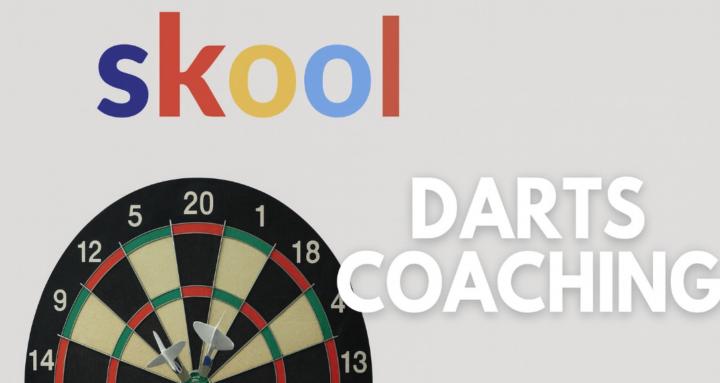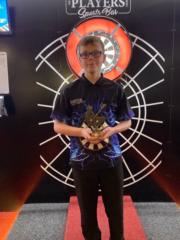1d • General discussion
Why Darts Players Have Nicknames – And Why Choosing the Right One Matters
Walk into any darts venue, and you’ll quickly notice something unique about our sport: every player seems to have a nickname.
From The Power (Phil Taylor) to The Iceman (Gerwyn Price), nicknames have become as much a part of darts as the oche itself.
But this isn’t just for show. A nickname can be a powerful tool for confidence, identity, and performance — especially when used as an alter ego.
Why Nicknames Matter in Darts
- Identity & Recognition - A nickname gives you a brand. The crowd remembers Snakebite or The Machine long after a tournament. A strong nickname sticks.
- Alter Ego Protection - Sometimes your real self doesn’t want the pressure. Stepping onto the oche as your alter ego means your “ego” isn’t on the line — the character is. This allows you to play freer, looser, and with more confidence.
- Energy & Presence - A nickname carries energy. Rapid Ricky Evans plays fast, Big John Henderson plays big. The name sets the tone before the first dart is even thrown.
- Psychological Edge - Your opponent feels it too. If they’re facing The Warrior, The Asp, or Mighty Mike, they already know what kind of fight they’re in.
Types of Nicknames
There’s no one-size-fits-all. Nicknames tend to fall into categories — each with its own power.
1. Power Nicknames – Strength & Dominance
- Example: The Power (Phil Taylor) – unbeatable aura.
- Example: The Iceman (Gerwyn Price) – cold under pressure.
- Why they work: They create fear and respect. They project dominance.
2. Speed & Style Nicknames – Identity in Play
- Example: Rapid Ricky Evans – reflects his lightning pace.
- Example: Cool Hand Luke Humphries – calm and stylish under fire.
- Why they work: They connect to playing style and remind you of your strengths.
3. Animal Nicknames – Instinct & Ferocity
- Example: The Ferret (Jonny Clayton) – small, sharp, surprising.
- Example: The Cobra (Jelle Klaasen) – fast strike, danger.
- Why they work: Animals bring natural instinct and fear factor. They’re primal, memorable, and give you a fighting identity.
4. Cultural & Humour Nicknames – Personality & Fun
- Example: Snakebite (Peter Wright) – colourful, larger-than-life.
- Example: Hollywood Chris Dobey – fun, flashy, memorable.
- Why they work: They make you stand out. They connect with fans and give energy.
5. Personal Story Nicknames – Identity & Roots
- Example: The Flying Scotsman (Gary Anderson) – roots and pride.
- Example: Voltage (Rob Cross) – linked to his job as an electrician.
- Why they work: They give your nickname authenticity. It means something to you and builds confidence.
The Test: Choose Wisely
When you pick a nickname, ask yourself:
- Does it reflect my playing style, my personality, or my roots?
- Will I still be proud of it in 5 years?
- Does it give me confidence and energy when I hear it?
- Does it protect me as an alter ego so I can perform freer?
Your nickname is more than a label — it’s a weapon.
So take your time, choose wisely, and step onto the oche as the player you want to be remembered as.
👉 What’s your nickname — and what kind of energy does it give you? Share it below and let us know which category you think it belongs to.
1
0 comments

skool.com/darts-360-performance-academy-1933
Mindset and Performance Coaching for Darts Players
Powered by





